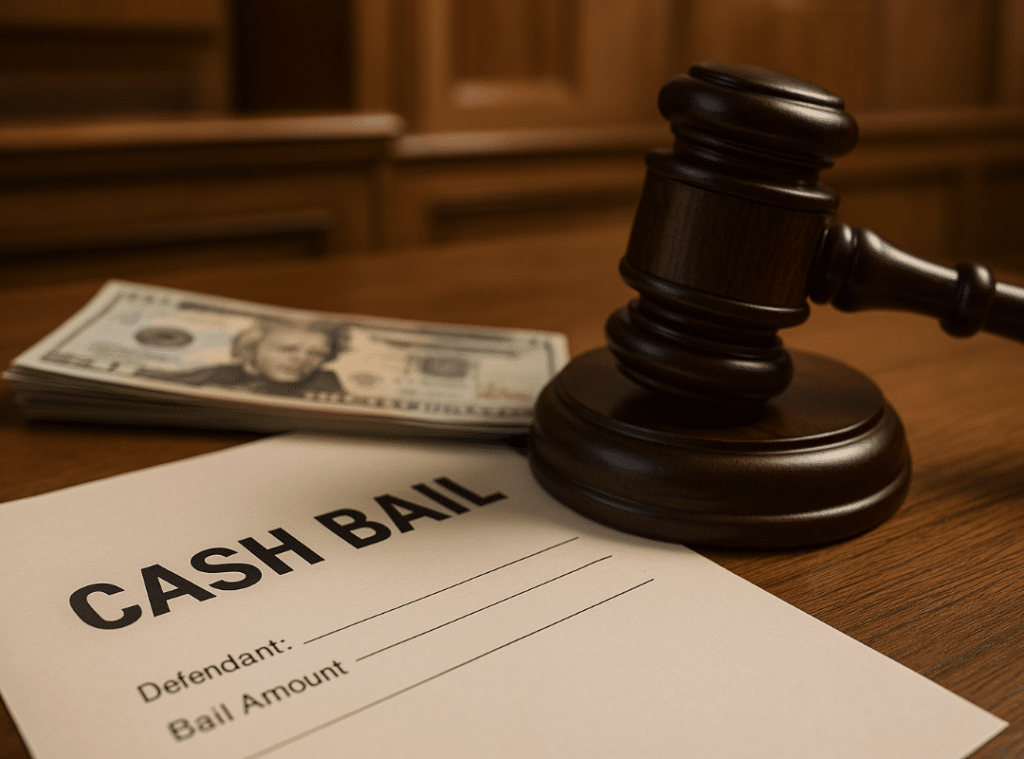
Facing a criminal charge in Wisconsin? One of your first and most critical moments in court is the initial appearance. For many, this hearing is where the judge will decide whether you walk free or remain in custody while your case proceeds. And thanks to a recent 2023 constitutional amendment, judges in violent crime cases now have more discretion than ever when setting cash bail.
At DK Anderson, S.C., we help clients navigate this high-stakes stage with clarity, strategy, and legal precision. Here’s what you need to know about Wisconsin’s initial appearance process—and how Act 3 changed everything about how bail works in violent crime cases.
What Is an Initial Appearance in Wisconsin?
At your initial appearance (Wis. Stat. § 970.01), the court does the following:
• Informs you of the charges in the criminal complaint.
• Advises you of your rights, including:
• The right to remain silent
• The right to an attorney
• The right to a speedy trial
• Considers appointment of legal counsel (via public defender or court-appointed).
• Sets bail and release conditions (more on that below).
• Schedules the next hearing, such as a preliminary hearing in felony cases.
What Happens with Bail at the Initial Appearance?
Bail (also called bond) is one of the most important issues at this hearing. The court may order:
•Release on Recognizance (ROR) – You promise to return, no money required.
•Signature Bond – You sign a document agreeing to pay a certain amount if you fail to appear.
•Cash Bail – You must deposit a specific amount before release.
•Hold Without Bail – Rare, and only in very specific statutory circumstances.
Prior to 2023, cash bail could be used only to ensure your appearance in court. Judges were prohibited from using bail to detain someone just because they believed the person was dangerous.
How Act 3 (2023) Changed Cash Bail in Wisconsin
In April 2023, Wisconsin voters approved Act 3, amending the state constitution to expand bail considerations in violent crime cases.
Judges May Now Consider:
• The seriousness of the offense
• The defendant’s prior convictions for violent crimes
• Public safety risks, including threats to specific individuals
• Likelihood of fleeing
• Witness intimidation concerns
• Affirmative defenses raised by the defendant
This new standard allows courts to set higher or even unaffordable bail if the judge believes public safety is at risk.
What Counts as a Violent Crime?
The Legislature defined violent crimes to include:
• Homicide
• Armed robbery
• Battery
• Human trafficking
Judicial Guidance: How Judges Must Set Bail After Act 3
Even after Act 3, judges must still:
• State their findings on the record
• Individualize bail decisions based on the specific facts of the case
• Consider non-monetary options first, such as:
• No-contact orders
• GPS or SCRAM monitoring
• Supervised release or pretrial services
• Travel restrictions
Cash bail cannot be used punitively—it must reflect actual risk to public safety and/or likelihood of flight.
How DK Anderson, S.C. Can Help You at Your Initial Appearance
We’ve helped hundreds of clients across Dane County, Madison, and southern Wisconsin prepare for initial appearances, argue for release, and challenge bail amounts. With Act 3 in effect, it’s more important than ever to have an experienced defense attorney present who can:
• Challenge the classification of your offense as “violent”
• Argue for non-monetary conditions
• Preserve your ability to fight your case outside of jail
Call Today for a Free Consultation – (608) 204-5807
Frequently Asked Questions - Wisconsin Cash Bail
Only in narrow cases, such as under Wis. Stat. § 969.035 or if you’re charged with certain violent crimes and the court finds you’re a danger to the public.
Your attorney can argue for release on recognizance or a signature bond. Judges must still consider less restrictive alternatives before setting cash bail.
No. It only applies to violent crimes. For non-violent offenses, judges still must follow the traditional standard—bail is only to ensure court appearance.
Our Practice Areas
Drunk Driving
Whether you are charged with a first offense, or a fifth offense, our Wisconsin OWI attorneys can help.
Violent Crimes
A conviction for any one of Wisconsin's violent crimes will have significant consequences.
Drug Charges
Our Wisconsin Drug charge attorneys know the law and how to apply that law in the court room.
Domestic Violence
A conviction for a domestic violence charge in Wisconsin has additional consequences.
Property Crimes
Wisconsin property crimes include theft, forgery, and criminal damage to property.
Sex Offenses
Not much will change your life like a conviction for one of Wisconsin's sex offense charges.
Traffic Citations
Although less serious than a criminal charge, a traffic citation can effect your driver's license.
